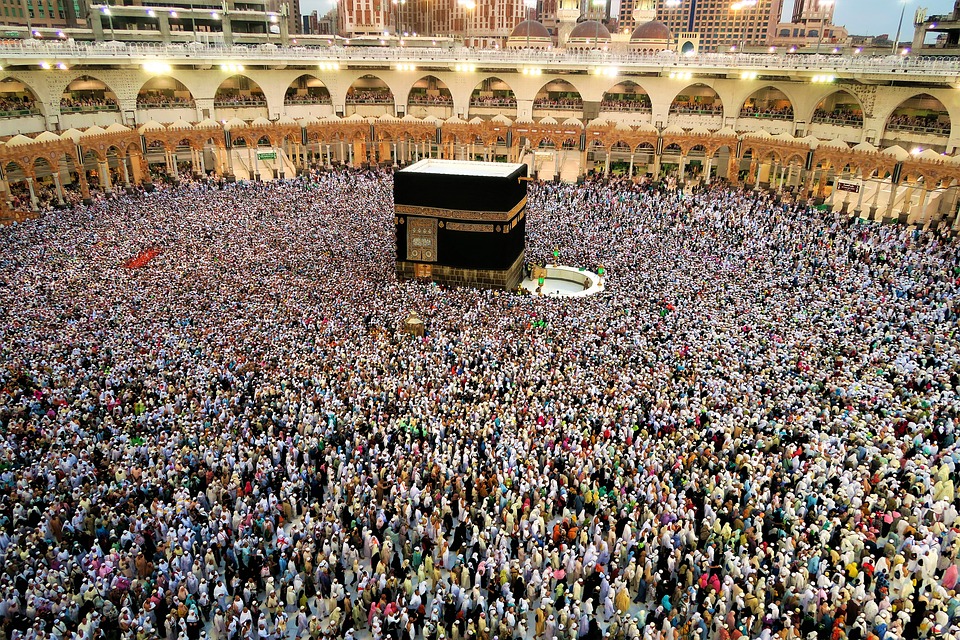 Islam is a monotheistic religion founded in the 7th century in the Arabian Peninsula. Its central text, the Quran, is considered to be the direct word of God as revealed to the prophet Muhammad. Muslims believe that there is only one God and that Muhammad is His final prophet, sent to guide humanity on the path of righteousness.
Islam places a strong emphasis on submission to God, known as Allah in Arabic, and the importance of following His commandments. Muslims believe that following the will of God is the key to a good life, both in this world and the next. The Five Pillars of Islam are the declaration of faith, daily prayer, giving to charity, fasting during the month of Ramadan, and making a pilgrimage to Mecca at least once in a lifetime if possible.
Islam also recognizes the importance of community and family, and encourages acts of kindness and compassion towards others. The Islamic calendar is based on lunar cycles and includes important holidays such as Eid al-Fitr, which marks the end of Ramadan, and Eid al-Adha, which celebrates Abraham’s willingness to sacrifice his son for God.
Islam has many similarities with Christianity and Judaism, including the belief in one God and a shared history of prophets and holy scriptures. The two religions have had a complex relationship throughout history, marked by periods of cooperation, conflict, and mutual influence.
To dive a little deeper and learn more about Sunni and Shi’a click here.
In conclusion, Islam is a dynamic and growing religion with a rich history and cultural heritage. Its followers are guided by a strong commitment to God and a desire to live a righteous and meaningful life.
Note: this post is intended to broaden the perspective of all readers and is merely a brief introduction. I encourage you to continue to explore by seeking additional content, attending multicultural events, and through curious conversations with members of this faith.
Islam is a monotheistic religion founded in the 7th century in the Arabian Peninsula. Its central text, the Quran, is considered to be the direct word of God as revealed to the prophet Muhammad. Muslims believe that there is only one God and that Muhammad is His final prophet, sent to guide humanity on the path of righteousness.
Islam places a strong emphasis on submission to God, known as Allah in Arabic, and the importance of following His commandments. Muslims believe that following the will of God is the key to a good life, both in this world and the next. The Five Pillars of Islam are the declaration of faith, daily prayer, giving to charity, fasting during the month of Ramadan, and making a pilgrimage to Mecca at least once in a lifetime if possible.
Islam also recognizes the importance of community and family, and encourages acts of kindness and compassion towards others. The Islamic calendar is based on lunar cycles and includes important holidays such as Eid al-Fitr, which marks the end of Ramadan, and Eid al-Adha, which celebrates Abraham’s willingness to sacrifice his son for God.
Islam has many similarities with Christianity and Judaism, including the belief in one God and a shared history of prophets and holy scriptures. The two religions have had a complex relationship throughout history, marked by periods of cooperation, conflict, and mutual influence.
To dive a little deeper and learn more about Sunni and Shi’a click here.
In conclusion, Islam is a dynamic and growing religion with a rich history and cultural heritage. Its followers are guided by a strong commitment to God and a desire to live a righteous and meaningful life.
Note: this post is intended to broaden the perspective of all readers and is merely a brief introduction. I encourage you to continue to explore by seeking additional content, attending multicultural events, and through curious conversations with members of this faith.
 Islam is a monotheistic religion founded in the 7th century in the Arabian Peninsula. Its central text, the Quran, is considered to be the direct word of God as revealed to the prophet Muhammad. Muslims believe that there is only one God and that Muhammad is His final prophet, sent to guide humanity on the path of righteousness.
Islam places a strong emphasis on submission to God, known as Allah in Arabic, and the importance of following His commandments. Muslims believe that following the will of God is the key to a good life, both in this world and the next. The Five Pillars of Islam are the declaration of faith, daily prayer, giving to charity, fasting during the month of Ramadan, and making a pilgrimage to Mecca at least once in a lifetime if possible.
Islam also recognizes the importance of community and family, and encourages acts of kindness and compassion towards others. The Islamic calendar is based on lunar cycles and includes important holidays such as Eid al-Fitr, which marks the end of Ramadan, and Eid al-Adha, which celebrates Abraham’s willingness to sacrifice his son for God.
Islam has many similarities with Christianity and Judaism, including the belief in one God and a shared history of prophets and holy scriptures. The two religions have had a complex relationship throughout history, marked by periods of cooperation, conflict, and mutual influence.
To dive a little deeper and learn more about Sunni and Shi’a click here.
In conclusion, Islam is a dynamic and growing religion with a rich history and cultural heritage. Its followers are guided by a strong commitment to God and a desire to live a righteous and meaningful life.
Note: this post is intended to broaden the perspective of all readers and is merely a brief introduction. I encourage you to continue to explore by seeking additional content, attending multicultural events, and through curious conversations with members of this faith.
Islam is a monotheistic religion founded in the 7th century in the Arabian Peninsula. Its central text, the Quran, is considered to be the direct word of God as revealed to the prophet Muhammad. Muslims believe that there is only one God and that Muhammad is His final prophet, sent to guide humanity on the path of righteousness.
Islam places a strong emphasis on submission to God, known as Allah in Arabic, and the importance of following His commandments. Muslims believe that following the will of God is the key to a good life, both in this world and the next. The Five Pillars of Islam are the declaration of faith, daily prayer, giving to charity, fasting during the month of Ramadan, and making a pilgrimage to Mecca at least once in a lifetime if possible.
Islam also recognizes the importance of community and family, and encourages acts of kindness and compassion towards others. The Islamic calendar is based on lunar cycles and includes important holidays such as Eid al-Fitr, which marks the end of Ramadan, and Eid al-Adha, which celebrates Abraham’s willingness to sacrifice his son for God.
Islam has many similarities with Christianity and Judaism, including the belief in one God and a shared history of prophets and holy scriptures. The two religions have had a complex relationship throughout history, marked by periods of cooperation, conflict, and mutual influence.
To dive a little deeper and learn more about Sunni and Shi’a click here.
In conclusion, Islam is a dynamic and growing religion with a rich history and cultural heritage. Its followers are guided by a strong commitment to God and a desire to live a righteous and meaningful life.
Note: this post is intended to broaden the perspective of all readers and is merely a brief introduction. I encourage you to continue to explore by seeking additional content, attending multicultural events, and through curious conversations with members of this faith.

